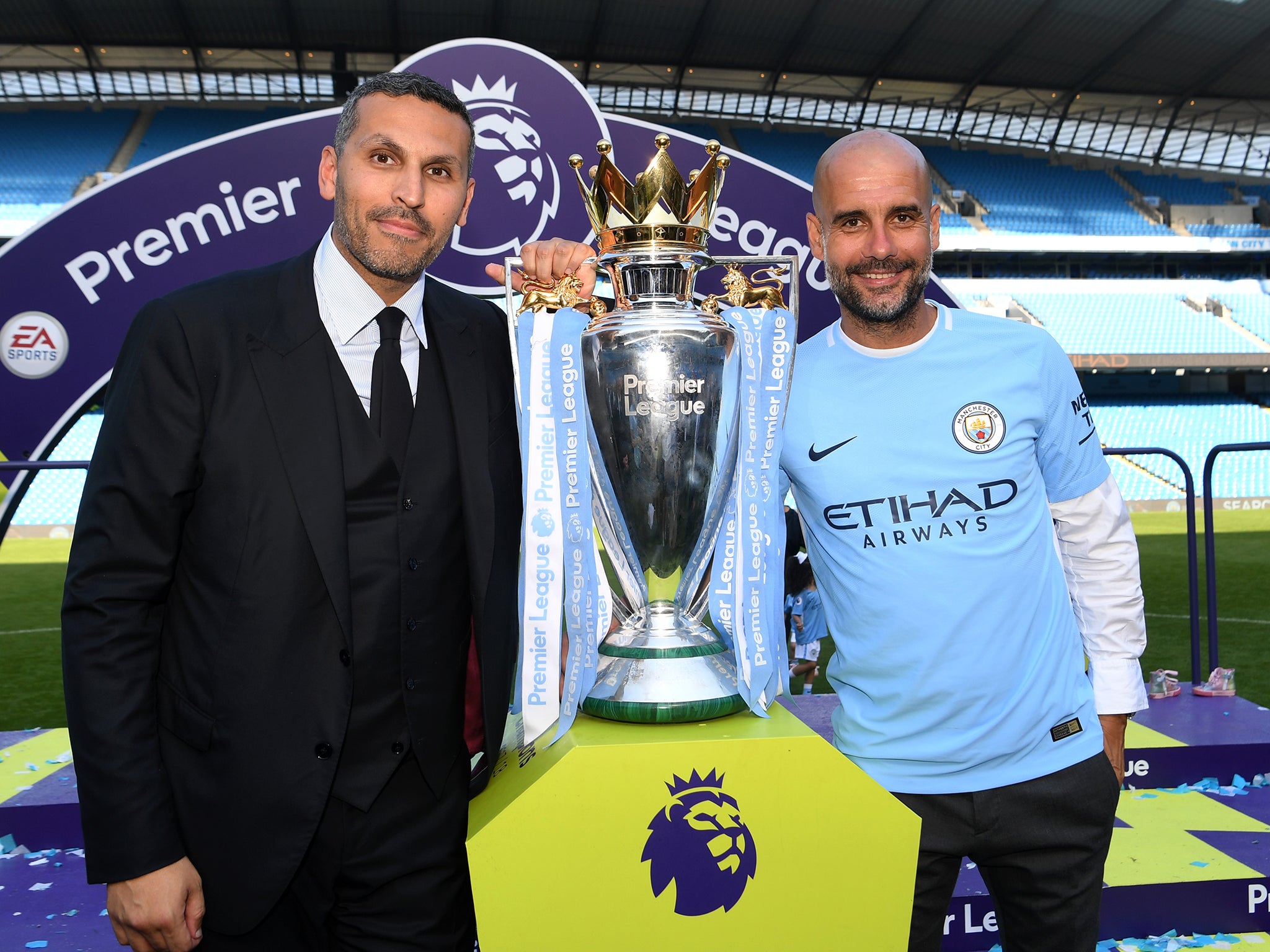European Super League: The great tragedy is that it isn't just distasteful, it's becoming logically desirable
It increasingly feels as though football can't go on like this, with so many clubs simply existing
If there was nothing like a “smoking gun” revelation in the latest round of Football Leaks reports, there was one line that reveals so much about how the game is run, and where it is going. It was the one attributed to Manchester City chairman Khaldoon al-Mubarak, by lawyer Simon Cliff, when objecting to the idea of heavy punishment for breaching Financial Fair Play.
“Khaldoon said he would rather spend £30 million on the 50 best lawyers in the world to sue [Uefa] for the next 10 years.”
This reads as flippant, maybe even simplistic, but it is really neither. It is a pithy articulation of City’s entire approach under Abu Dhabi: just spend whatever it takes to bring in the absolute best people. That is what they have done at every level of the club, from targeting administrative expertise from what has been described as “the Apple of football” at Barcelona, to the players and of course the manager in Pep Guardiola.
It has created a situation where a club has efficiently maximised money to an unprecedented degree. It has created a situation where Liverpool’s draw at Arsenal feels such a poor result in the Premier League title race, because all of City’s resources and the relentless imperiousness of Guardiola have ensured they will likely win around 85% of their games – just as they did last season.
In that respect, the champions literally lead the way in something that has become a troubling trend for the self-described “most exciting league in the world”. It isn’t that exciting. The six wealthiest sides are winning more games than ever before. There is a rather tedious predictability to the vast majority of Premier League matches.
If the fact there are six such wealthy clubs means the English top flight won’t quite develop the problem of single-club domination that the Bundesliga, Ligue 1 or Serie A have – and it does feel as if the precise level of City’s ludicrously high points return is specifically down to Guardiola – the wider problem is precisely the same: the financial polarisation of the sport between the very elite level and the rest is now reaching a depressing point of no return, that is deeply affecting results in a way never seen before.

Money isn’t so much talking in football, but issuing dictatorial decrees, and as made painfully clear by that other most prominent detail from Football Leaks – the naked and detailed plans for a Super League – it is now threatening the very fabric of the game to a greater degree than ever before.
But this is also the great tragedy of it all. We are actually reaching the point where a Super League isn’t just distasteful; results and the growing gulf in resources have made it so that a Super League is actually logically desirable.
It does feel as if the game just can’t go on like this, especially in France, Germany and Italy. Far too many clubs are just existing, with minimal mobility possible. Far too few clubs can even get close to winning something.
The example commonly cited as the great saving grace is Leicester City, but that is so celebrated precisely because it so defied the 5,000-1 odds; precisely because it was a miracle. And if it’s a miracle, at odds that far out, then it’s not an example. It’s a grand exception that only proves the rule.
Money dictates like never before. The figures and the gaps are more pronounced than ever before. Through that, football has really just gone the way of the world, and the global capitalist economy. The structures have long been in place that made this situation – and indeed situations like the 2008 crash – inevitable. It was just that no one realised to say stop in time.
But that’s the way these processes often work. They’re gradual, and thereby become set in granite before anyone notices. So it was with football, where a number of steps were taken – from the 1981 change to ticket revenue distribution to the foundation of the Premier League and Champions League – that incrementally increased the amount of money going to the big clubs.
They bloated the top level of the sport to such a size that other capital could be gleaned from it: political status, power, image. It entered a more sophisticated era of ownership, with the door opened by Roman Abramovich and Chelsea and the building then occupied by Middle Eastern oil states.
Hence we see Paris Saint-Germain and City with more money available to them than any club has ever had before.
It is a logical end point in a long-term process, and little wonder that PSG and City have now been fully accepted by the old-money cabal – as the Football Leaks documents make clear. There might have always been problems with FFP, but the problem is now far greater than that.

Bayern Munich and Manchester United and Real Madrid and PSG have more in common with each other than the vast majority of clubs in their own countries. It naturally follows from everything from their recent business histories that they would eventually want to come together to make even more from this.
So much, too, for the previous comments from Bayern Munich and former United officials like David Gill about their concern for the traditional structures of football.
The latest Football Leaks revelations have laid bare just how prominent the threat of radical change now is. It does feel as if the game is on a precipice, and that is another tragedy.
For all of football’s problems through the years, one of its great virtues was a universality that came from an almost ludicrously lucky balance it struck. The fact that a single child only needs something remotely resembling a ball to play fostered universal appeal, with that ‘everyman’ quality almost reflected in the rules.
Football was just low-scoring enough so that anyone could beat anyone else on a given day. Even one of the game’s fundamental actions, a single kick at goal for a penalty, pointed to this finely struck balance. The fact the spot is 12 yards out gives the kicker a 70% chance of scoring, which is almost precisely how loaded it should be for such a punishment. It was the perfect balance.
Now, it is the widening numbers of the game’s finances that are threatening this balance. The people’s game is increasingly becoming a cabal’s game, and maybe finally and fatally.
The sport feels like it is now headed for huge transformation. There’s no smoking gun, but there is so much smoke.
Join our commenting forum
Join thought-provoking conversations, follow other Independent readers and see their replies
Comments